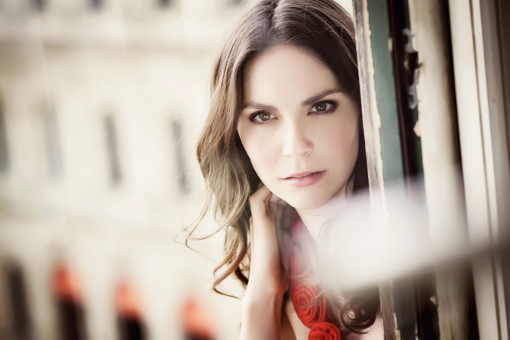Müller, comprimarios bring life to Met’s sleepy, second-run “Figaro”

Le Nozze di Figaro sparkles enough on its own that a competent performance will always have considerable charm, especially in a nimble production like the one by Richard Eyre that plays at the Metropolitan Opera. Even so, the second cast that performed at the Met on Wednesday night felt sleepy compared to the delightfully raucous first run that opened a season-long revival in November.
Much of that drowsiness came from Cornelius Meister’s bland and clumsy conducting. The general color of the Met Orchestra was suitably bright, but right from the start of the overture, the articulation in the strings sounded ragged. Worse, Meister struggled with ensemble all night, forcing singers to stare into the pit rather than engage with each other. His odd tempos led to uneven pacing, as plot-moving scenes tended to drag; he then went to the opposite extreme with bizarre breakneck speeds in ostensibly quiet moments like “Voi che sapete.”
Wednesday’s cast soldiered on with fine vocal performances, even if the energy lagged in some of the recitatives. After an early season run as the Count, Adam Plachetka returned to his gruff-but-nice-guy portrayal of Figaro that has become his signature role at the Met. His wooly bass-baritone sounded a little gray on Wednesday, especially taking “Non più andrai” as fast as he did. Even so, his affable portrayal of Figaro feels completely natural, helped by his easy comic timing and expressive features.
Soprano Hannah-Elisabeth Müller impressed in her largest Met role yet, giving a lively portrayal of Susanna. Her voice sounded slightly hard in the early going, particularly in her recitatives, but as the night wore on she opened up brilliantly, culminating in a spellbinding rendition of “Deh, vieni, non tardar.” She delivered the dreaming melody with lovely, simple clarity, showing off a honeyed middle range that climbs up to pure, beaming light at her top.
Anita Hartig has had several superb outings as Susanna at the Met, and on Wednesday she made her role debut as the Countess. The Romanian soprano is a wonderful, sensitive singer, but the role felt like a mismatch for her. Hartig boasts a thrilling, powerful voice with laser focus and dark tone but the Countess needs more vocal weight to fill out her broad, lush lines. Throughout the evening, it felt as though she was trying to rein in her fiery, penetrating instrument in favor of a softer sound that just wasn’t there. This was especially apparent in the pensive quiet of “Dove sono,” where she struggled to keep her tone focused.
Etienne Dupuis filled in on short notice for Mariusz Kwiecień as Count Almaviva, and could hardly have done better under the circumstances. His is not a booming voice, but Dupuis was still able to command the stage with his robust, oaky baritone. He gave a convincing portrayal, even if it slighted some of the Count’s cruelty towards his wife. Especially intriguing was Dupuis’s account of “Hai gia finta la causa” at the top of Act III, where he wrestled with his doubts before finding his resolve in the scene’s final bars.
Marianne Crebassa gave a winning debut as Cherubino, charming with her full embrace of the character’s adolescent antics. There is a bewitching energy in her mezzo-soprano, which features a bright tone and quick vibrato. Her voice is so lively, in fact, that some of her singing got a little punchy, as she occasionally struggled to tame her assertive instrument into smooth phrases. As Barbarina, Maureen McKay showed a consistent, clear soprano and impressive soft notes at her top.
Maurizio Muraro was just about definitive as Dr. Bartolo, with eye-popping patter and wry comic instincts. His cavernous bass and deep, rich tone somehow managed to feel buoyant, as though the sound were bursting out of him. MaryAnn McCormick was an ideal Marcellina, combining a warm, broad mezzo with imperious bearing, and Keith Jameson’s tart demeanor and reedy tenor made him a deliciously slick Don Basilio.
Le Nozze di Figaro runs through February 22 at the Metropolitan Opera. metopera.org






